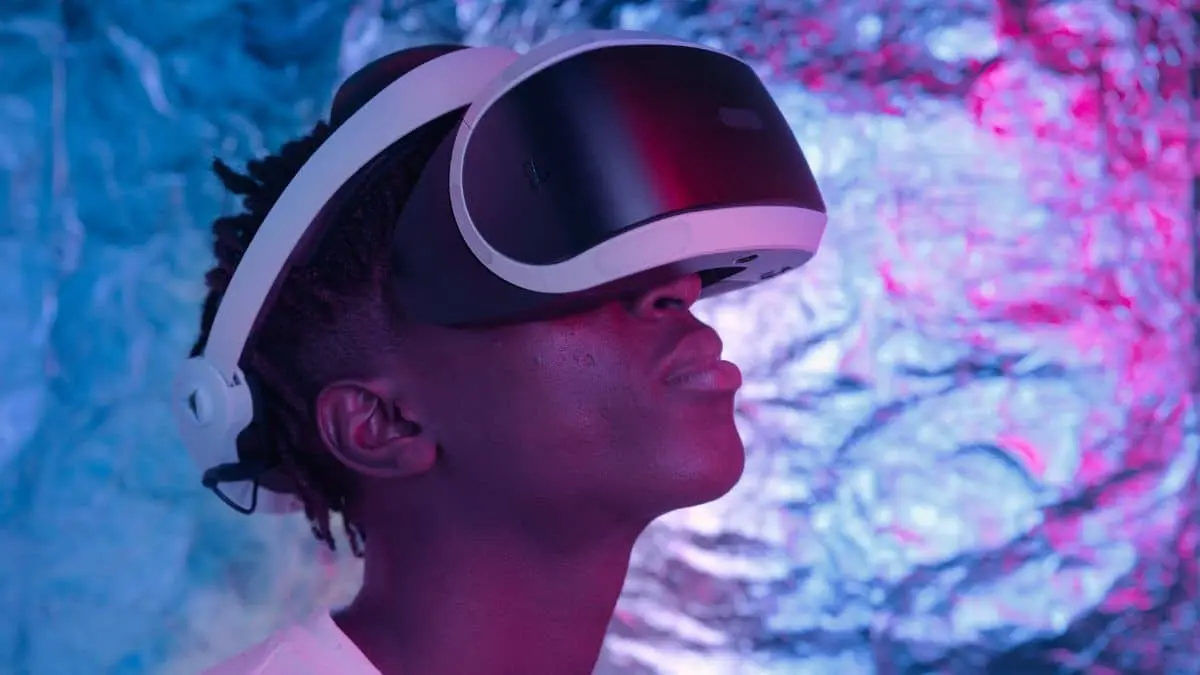From the early days of pixelated adventures to today’s hyper-realistic virtual worlds, gaming has consistently embraced technological advancements to deliver immersive experiences that captivate millions of players worldwide. One of the most transformative and promising technological frontiers in gaming is the integration of Artificial Intelligence (AI). Over the years, AI has evolved from a novelty to a powerhouse, fundamentally altering how games are developed, experienced, and even conceptualized. In this article “Use of AI in Gaming Industry, Analysing Present and Future”, we are on a journey to exciting future where AI meets gaming. We will be looking at the current state of affairs and peering into the limitless future possibilities.
Use of AI in Gaming Industry, Analysing Present and Future
The Current Landscape of AI in Gaming
In the quest to deliver increasingly sophisticated and captivating gaming experiences, developers have harnessed the power of AI across various facets of game development and gameplay. Here, we explore some of the key areas where AI is making its mark in the gaming industry today.

AI-driven Game Design
1. Procedural Content Generation
AI algorithms have become indispensable in creating vast and diverse game worlds. Procedural content generation, a technique that utilizes AI to create game environments, terrain, and assets on the fly, has significantly reduced the burden on developers. Games like “No Man’s Sky” and “Minecraft” are prime examples of how AI generates expansive, virtually infinite worlds, allowing players to explore to their hearts’ content.
2. Dynamic World-building
Beyond static environments, AI can breathe life into in-game worlds by dynamically responding to player actions. Environmental changes, weather patterns, and even the behavior of wildlife can adapt in real-time. This dynamic world-building creates a sense of immersion and unpredictability that keeps players engaged, as seen in titles like “Red Dead Redemption 2.”
AI-powered NPCs (Non-Playable Characters)
1. Behavior and Decision-making
The introduction of AI-driven NPCs has revolutionized gaming narratives. Characters in modern games are no longer confined to scripted actions; they possess the ability to react intelligently to the player’s choices. Whether it’s the intricate decision-making of NPCs in role-playing games like “The Witcher 3” or the tactical prowess of enemies in shooters like “Halo,” AI contributes to more realistic and challenging gameplay.
2. Enhancing Realism and Player Immersion
AI also plays a pivotal role in enhancing the realism of gaming worlds. Facial expressions, body language, and even dialogue are now influenced by AI algorithms, creating characters that feel genuinely human. This immersion is crucial for storytelling and emotional engagement, evident in titles like “The Last of Us Part II.”
AI for Game Testing and Quality Assurance
1. Automated Testing and Bug Detection
AI is streamlining the quality assurance process, reducing the likelihood of game-breaking bugs and glitches. Automated testing tools powered by AI can rapidly identify issues, from graphical anomalies to gameplay inconsistencies, saving both time and money during development. This ensures that players experience a smoother, bug-free journey.
2. Reducing Development Time and Costs
By automating repetitive tasks, AI-driven tools are shortening the development cycle, allowing developers to focus on creative aspects. This efficiency not only speeds up game production but also lowers development costs, making gaming more accessible to a broader range of studios and creators.
Future Possibilities and Trends
As AI technology continues to advance at a rapid pace, the gaming industry is poised for an era of unprecedented innovation and player engagement. Here, we’ll delve into some of the exciting future possibilities and emerging trends where AI will play a pivotal role.

AI and Virtual Reality (VR)
1. Immersive VR Experiences
Virtual Reality is evolving from a niche technology into a mainstream gaming platform, and AI is set to amplify its potential. AI-driven algorithms can enhance VR experiences by creating more immersive, interactive, and responsive virtual worlds. This could lead to games where players truly feel transported to fantastical realms or historic eras, with lifelike interactions and environments.
2. Gesture Recognition and Body Tracking
AI-powered gesture recognition and body tracking will enable players to use their physical movements to control characters and objects in VR environments. Imagine a sword-fighting game where your real-life sword skills are translated into the game or a sports simulator where your every move is mirrored in VR, providing a seamless and deeply engaging experience.
AI-Generated Content
1. AI-Authored Narratives
AI-driven storytelling is on the horizon, where AI algorithms generate branching narratives tailored to each player’s choices and preferences. Games will adapt in real-time, creating unique experiences with every playthrough. This innovation could redefine the boundaries between traditional storytelling and interactive gaming, offering players unparalleled narrative depth.
2. AI-Generated Art and Music
Artificial intelligence is not limited to gameplay; it’s extending its creative prowess to generate in-game art, music, and soundscapes. AI can analyze player actions and emotions to dynamically compose music that enhances the gaming experience. Similarly, it can generate breathtaking visuals that evolve based on gameplay situations, resulting in visually stunning and emotionally resonant gaming environments.
Cloud Gaming and AI
1. Reducing Hardware Requirements
Cloud gaming, where games are streamed over the internet, is gaining momentum. AI will play a crucial role in reducing hardware requirements, making high-quality gaming accessible to a broader audience. Gamers won’t need cutting-edge PCs or consoles; they’ll be able to enjoy resource-intensive titles on a range of devices with minimal latency.
2. Enhanced Streaming Quality and Lower Latency
AI can optimize data compression and streaming protocols, resulting in smoother and more responsive cloud gaming experiences. Lower latency and improved video quality will be paramount, ensuring that players can enjoy demanding multiplayer games without any perceptible lag, even in remote locations.
Conclusion

The fusion of Artificial Intelligence (AI) with the gaming industry has unleashed a tidal wave of innovation, transforming how games are created, played, and experienced. As we wrap up our exploration of the present and future of AI in gaming, one thing is abundantly clear: the union of these two technological powerhouses is a game-changer in every sense of the word.
Also Read: 10 Best Space Adventure Games of All Time



